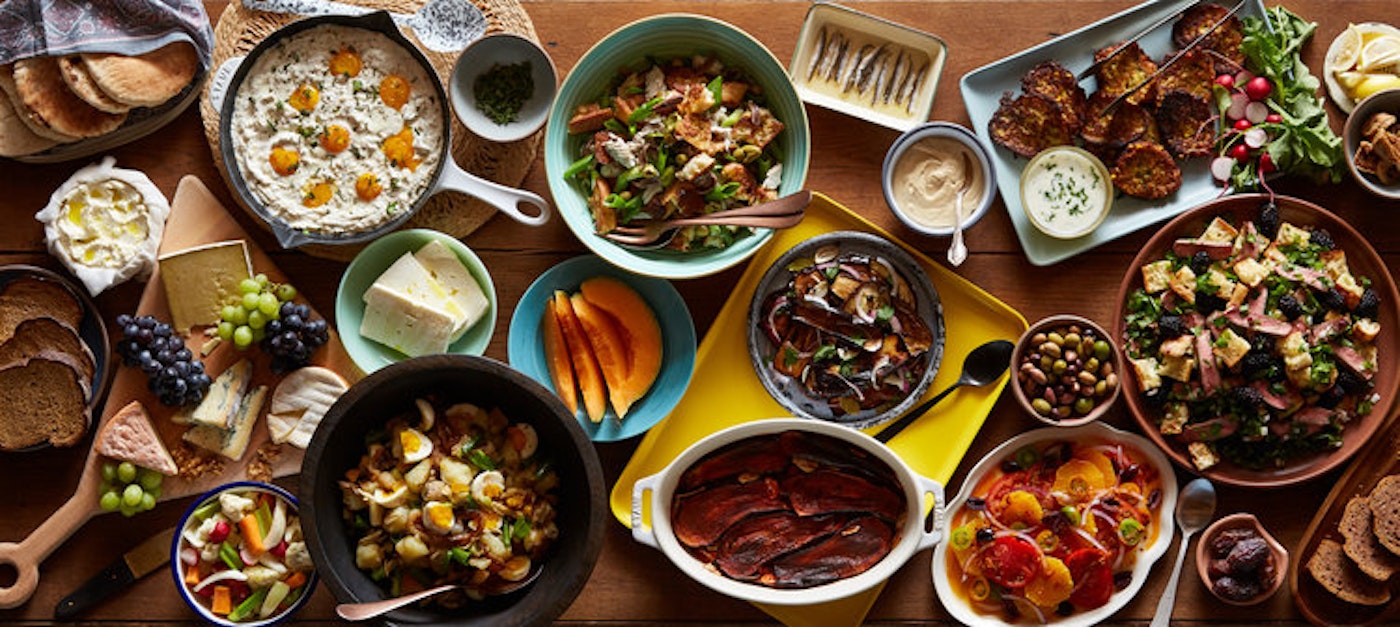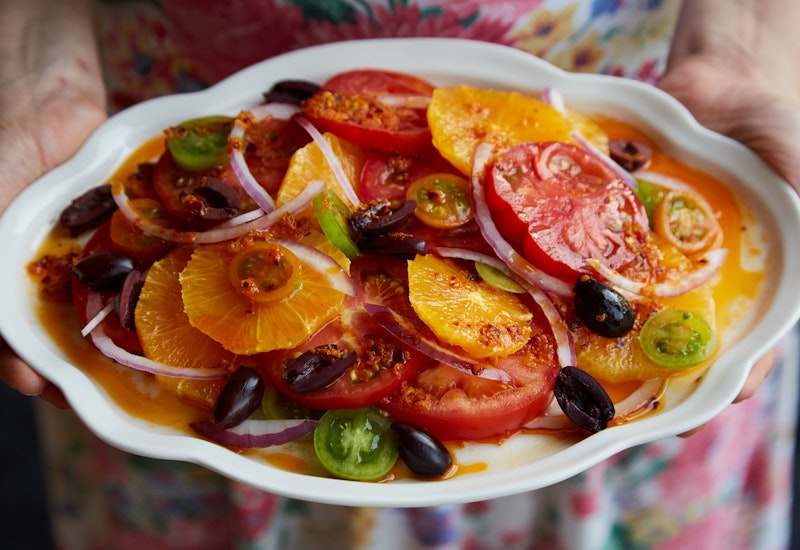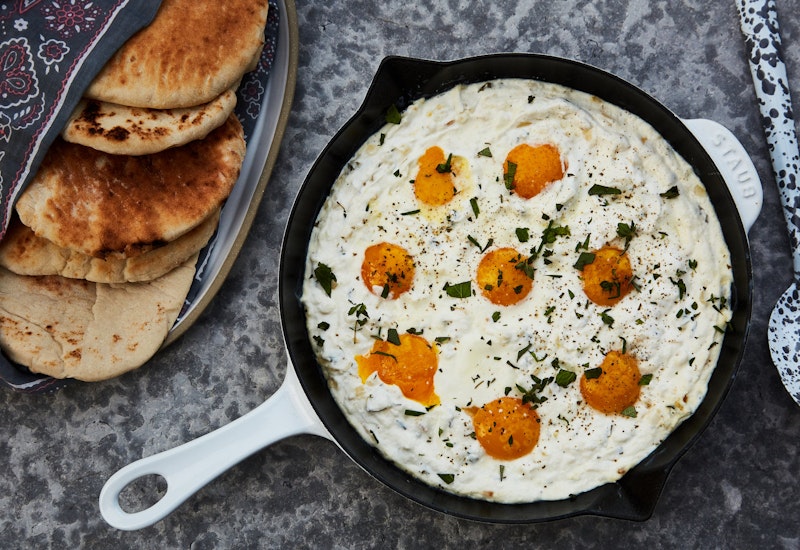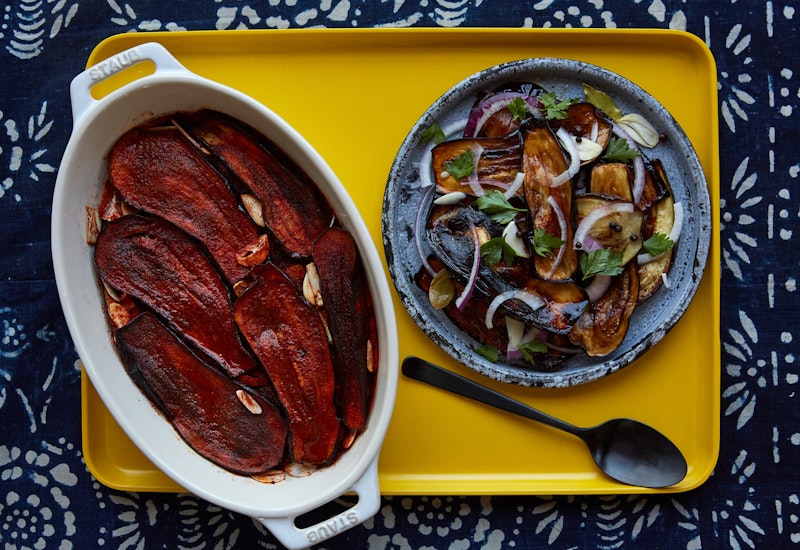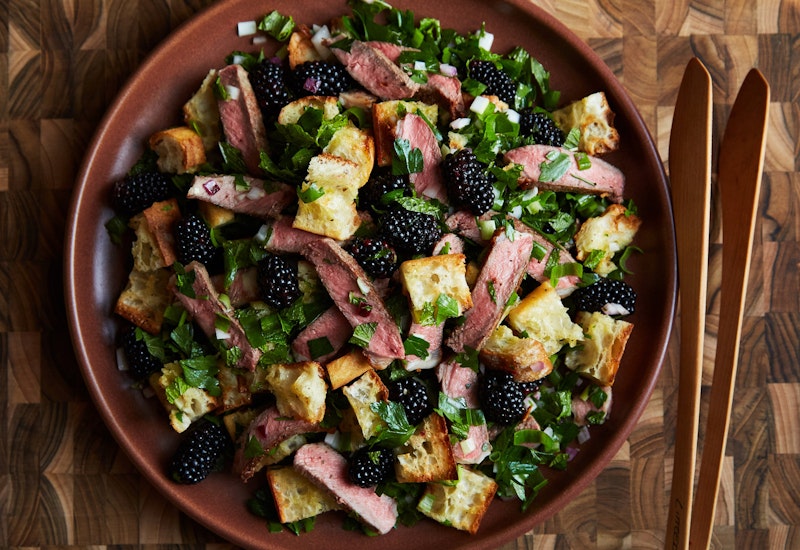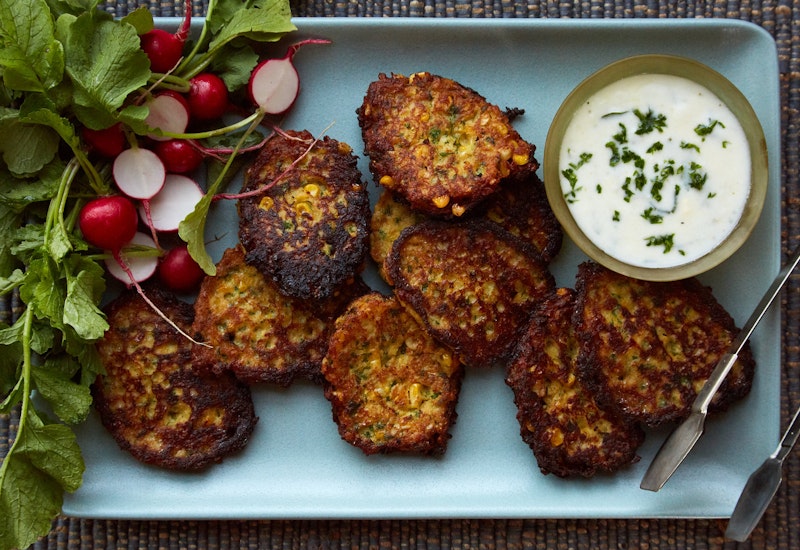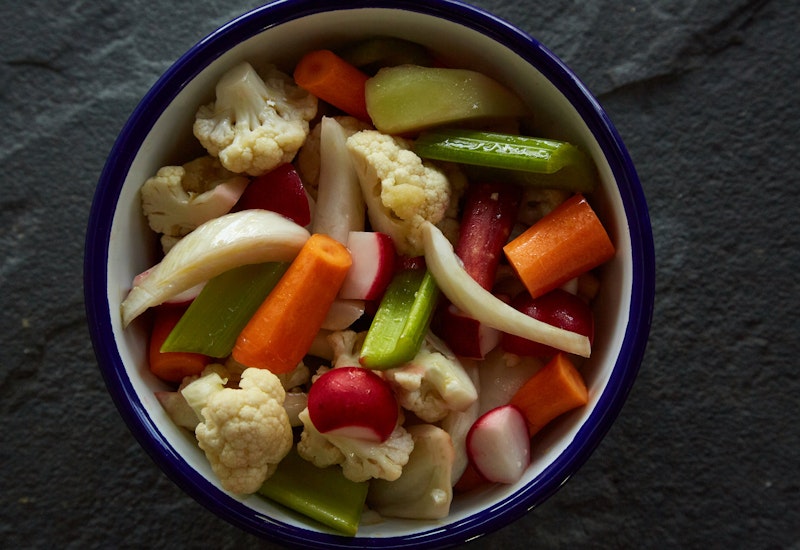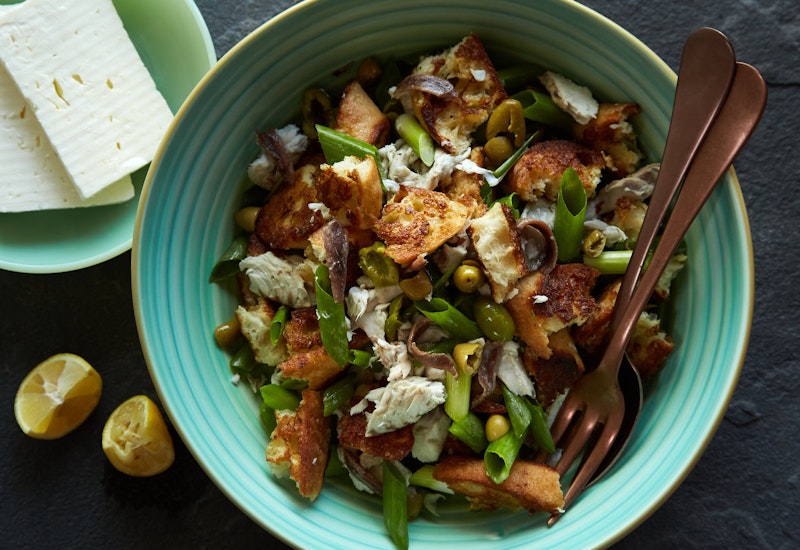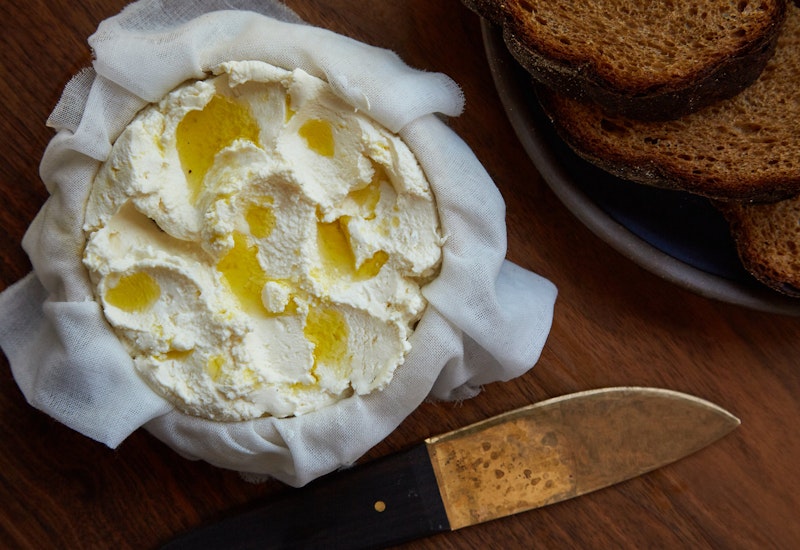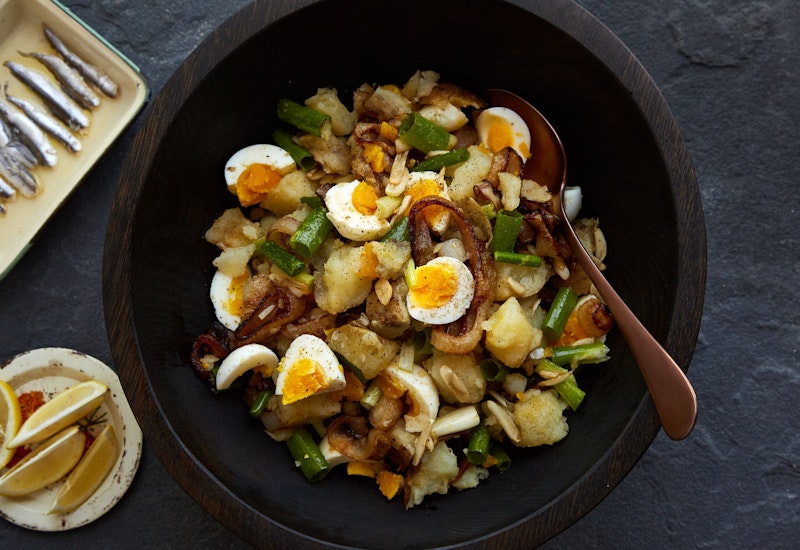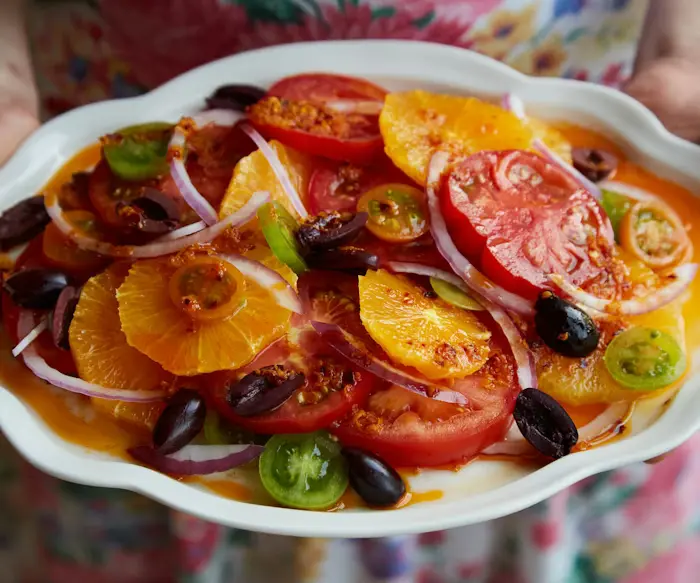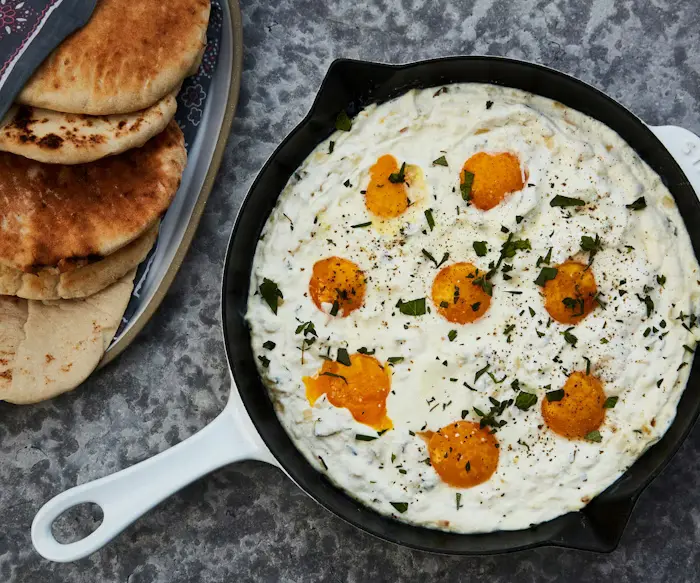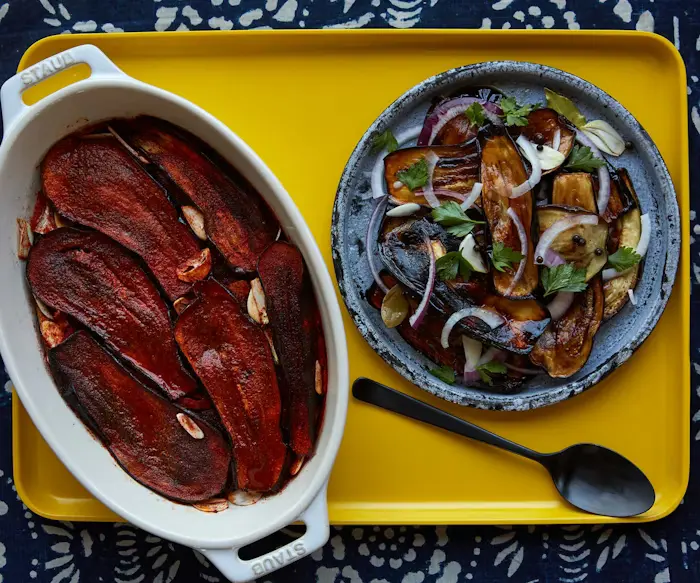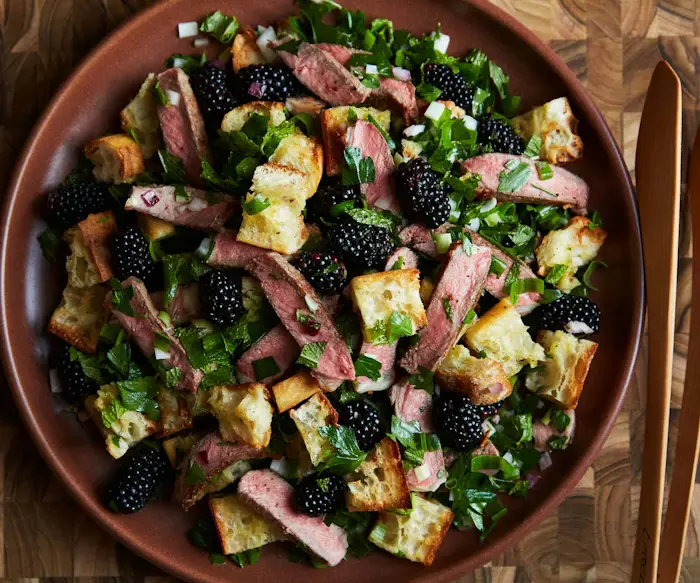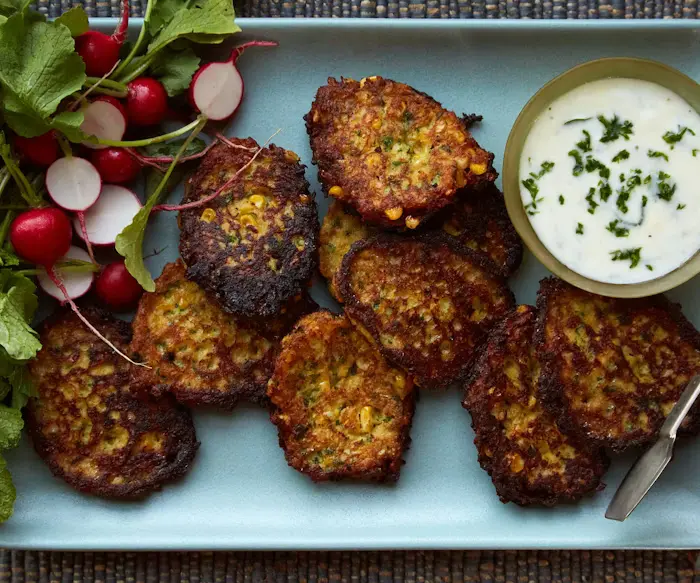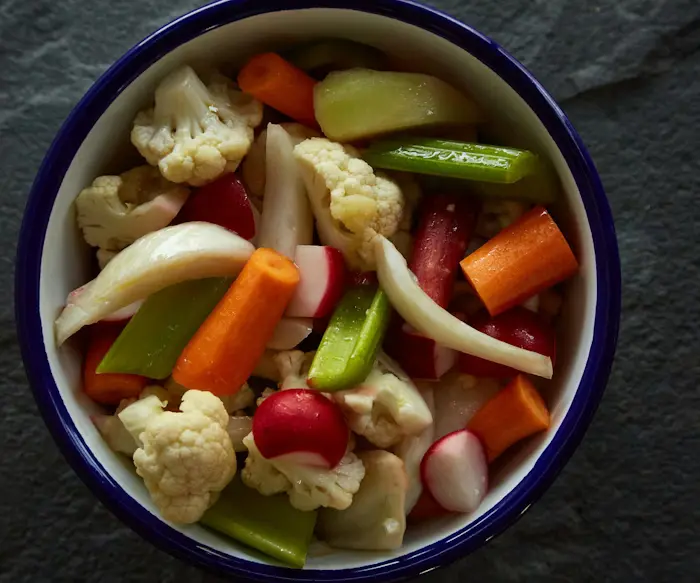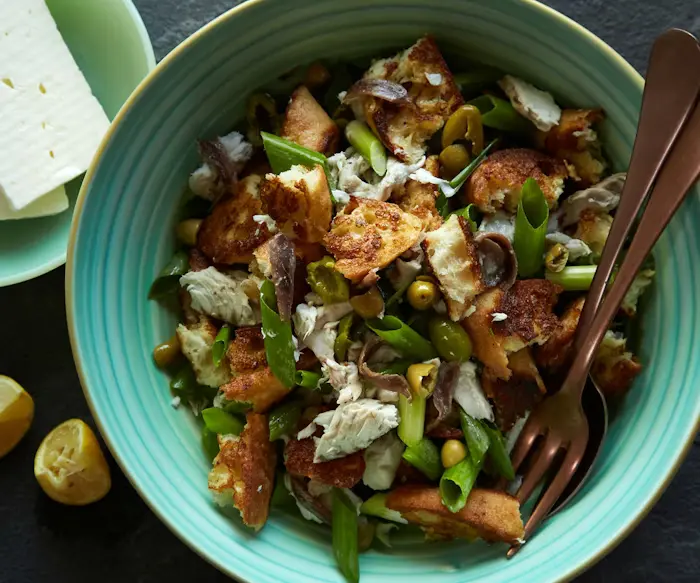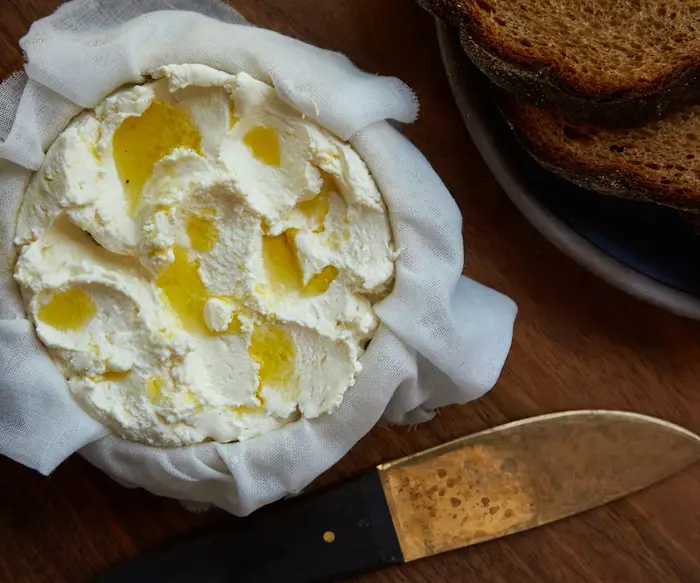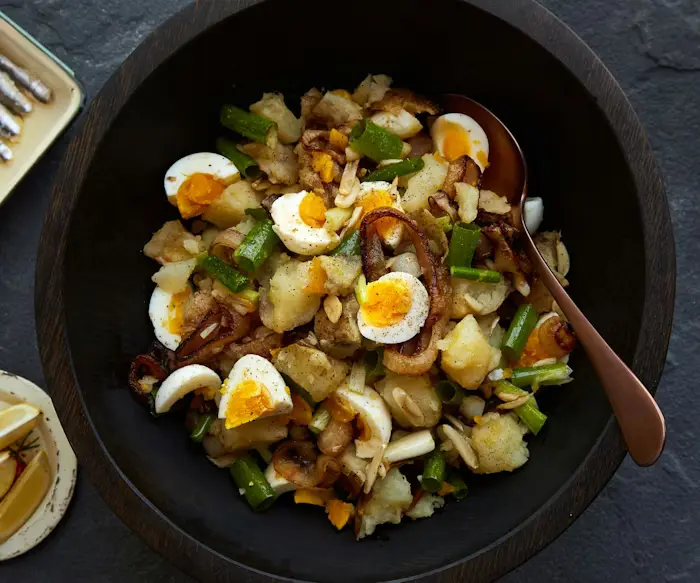Read more about Hedai Offaim in “How Hedai Offaim Keeps His Grandmother’s Shtetl Recipes Alive” and try his recipe for eyerlekh mit tzvible (eggs with onion).
On a typical Saturday morning in the Ella Valley, nearly an hour outside of Jerusalem, Hedai Offaim’s table will be laid with plates like a glowing orange and tomato salad, fried eggplant slices prepared two ways, crispy corn latkes, a pan of white shakshuka made by cooking egg yolks in thick and tangy labneh, and a salad of torn bread and cold fish leftover from Shabbat dinner. “And if we have guests, we might even have more,” Hedai, a chef, farmer, writer, and entrepreneur says. He and his family have guests at their table several days a week. Located in the center of their home, the table seats 16 to 18 easily — 25 if they expand it. And, “our table is always open,” he adds.
Hedai’s cooking is an extension of his work as a farmer and an expression of his Zionism, each dish taking inspiration from what flourishes in Israel. Growing up in a working class family in Haifa, he spent his weekends on a kibbutz where his cousins lived. When his cousins would head deep into the orchards to reach the sweet tangerine grove, Hedai would fall off from the group by the grapefruit trees, which were closer to home and wait for them to return. As the time passed, he developed a love for the sometimes bitter fruit. “My cousins were sabras,” he explains using the term for a native-born Israeli. “They walked barefoot on the hot roads… and rode bikes with no hands. I was the city boy.” He longed to be more like them.
In his grade school classroom, there was a photo of an Israeli farmer. “Growing up, it was obvious to me that farmers are the heroes,” Hedai explains.
Hedai’s parents always told him to do what he wanted as long as he wasn’t a barber or a chef. He became an officer in an elite unit in the Israeli military and went on to study Jewish history.
“But, it was clear to me and to my older brother that if we want to fulfill our destiny, [we need] to become farmers,” he says. They started an organic farm in the Aravah in the south of Israel growing tomatoes that were shipped overseas and sold at stores like Whole Foods. Their dream of driving a tractor and snacking on watermelon on the front porch was replaced with hours spent with their accountant. Life “didn’t look like the dream we had in our homeland class,” Hedai adds.
That came into sharper light when a friend of Hedai’s brother was killed while completing his military reserve duty in Gaza. When their slain friend’s father offered a eulogy, he said his son’s legacy and memorial was the land he left behind, the land of Israel. As the brothers drove home, they knew the farm as it was was not what it was meant to be. Hedai traveled around the world learning about sustainability and came back to Israel and started a 10 year transition of their business into a sustainable farm.
Today, he and his brother operate a farm and a handful of cafes and shops selling their cheeses and produce. “We are not farm to table. We are seed to table,” Hedai says, and everything they produce is sold locally in Israel by them.
“We are not farm to table. We are seed to table”
There’s no separation between Hedai’s life as a farmer and his life at home around his table. “I don’t finish my job and go home and do something else. This is my life, how I spend my time,” he says. “Hosting at home is what we do. Even in my restaurant, I feel like I’m hosting at home. Our food is based on the notion of hospitality.”
